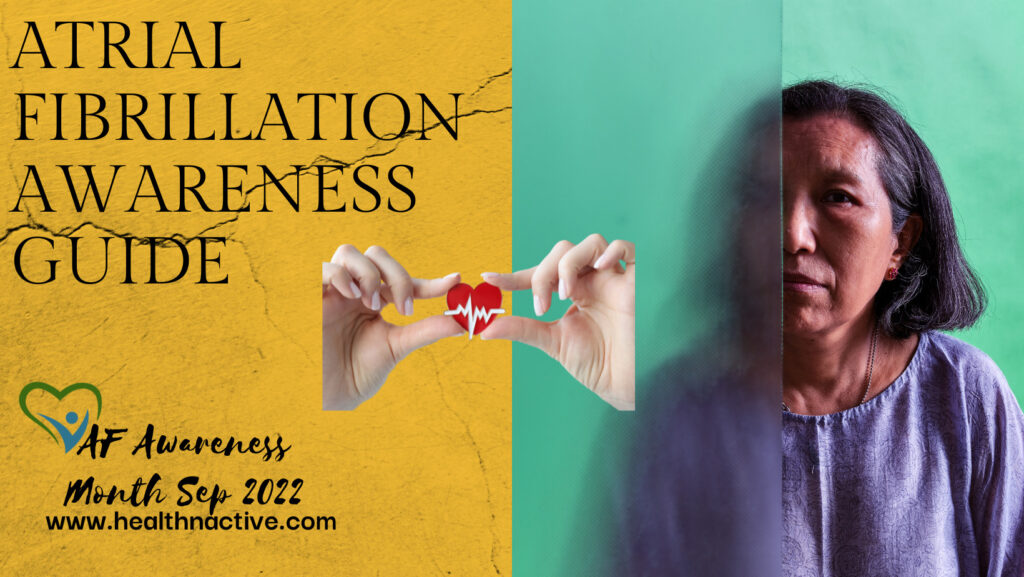Atrial fibrillation is an abnormal heart rhythm that commences in your heart’s upper chambers (right atrium). Dizziness, difficulty breathing, weariness, and palpitations are among symptoms. A fib is one of the most prevalent arrhythmias. Obesity, coronary artery disease, and high blood pressure are risk factors. A fib left untreated can result in a stroke.
What is Atrial Fibrillation?
Atrial Fibrillation, some times referred to as A Fib or AF, represents the most common type of cardiac arrhythmia, or abnormal heart rhythm.
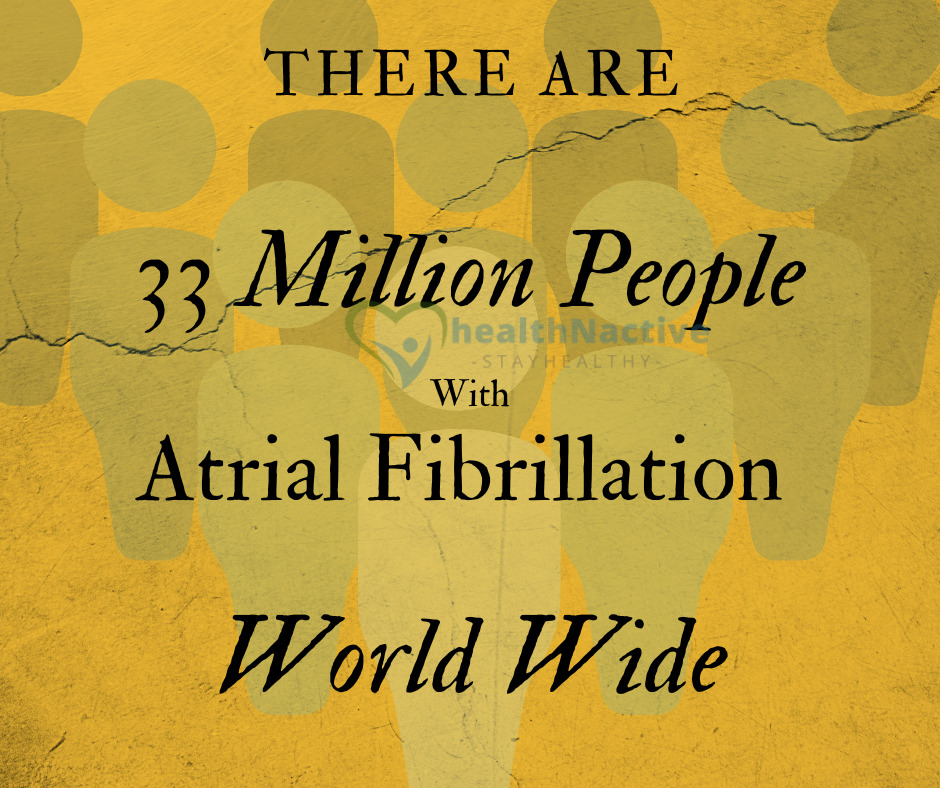
The heart is a muscular organ with four chambers, each of which occupies both the right and left sides of the organ: two upper chambers, known as the atria, and two lower chambers, known as the ventricles.
The electrical system of the heart organises the activity of the heart chambers (heart rhythm) and regulates the rate of heartbeats (heart rate).
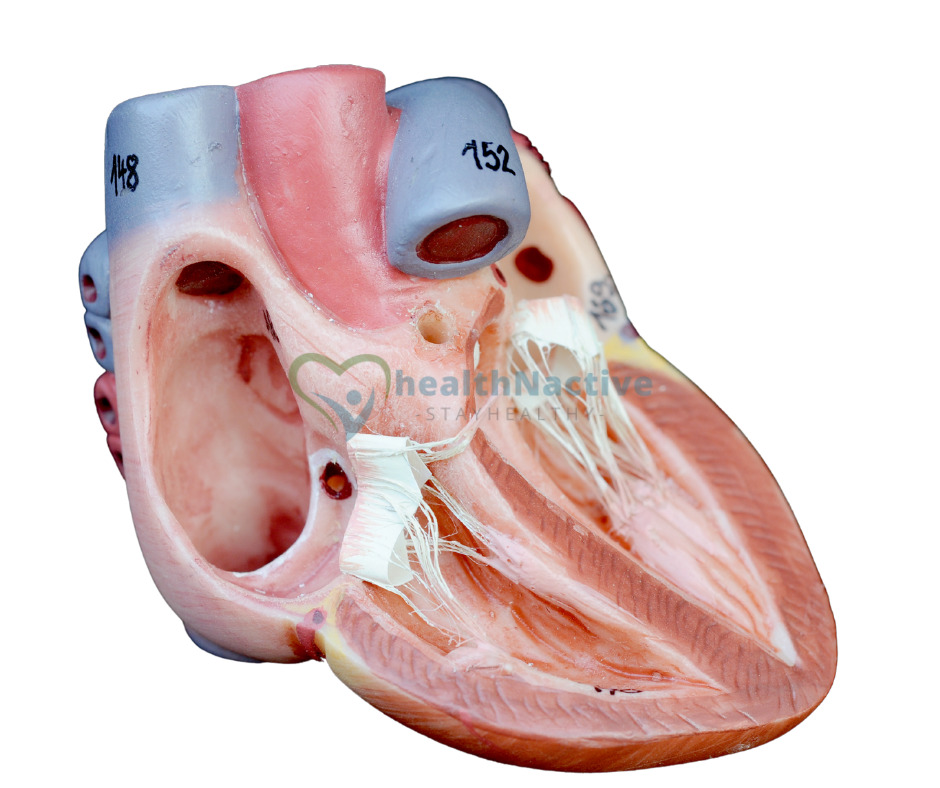
During Atrial Fibrillation, the atria beat rapidly or in an uncontrolled manner. Atrial Fibrillation is a condition that interrupts the normal flow of the electrical system of heart, which is typically reflected on an ECG.
When the heart beats irregularly, it does not pump blood as efficiently. A person may feel ill or experience other Atrial Fibrillation symptoms because oxygen is not being properly delivered to all organs of the body.
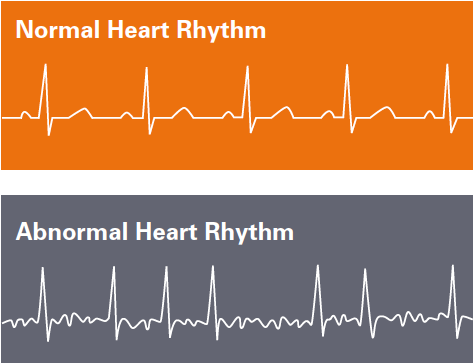
The duration of the Atrial Fibrillation episode is used by the Heart Rhythm Society to characterise Atrial fibrillation. AF progresses more along the scale of progression the longer someone is constantly experiencing it. The different types of AF are:
- Proxysmal (Occasional) Atrial Fibrillation
- Persistent Atrial Fibrillation
- Long Standing Atrial Fibrillation
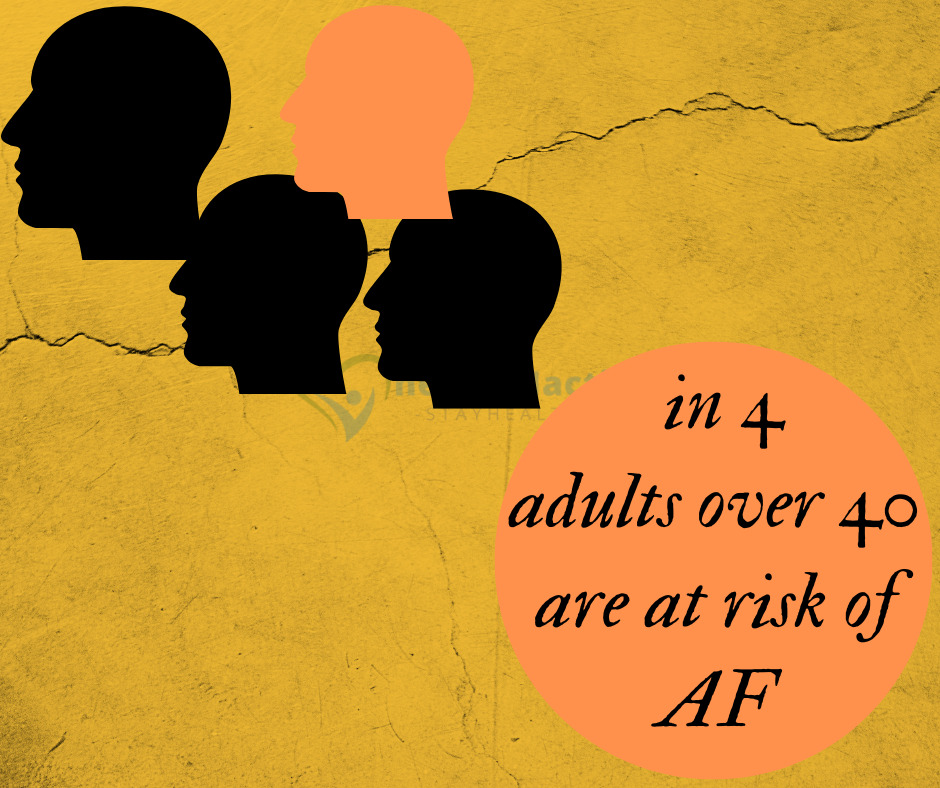
Progression of Atrial Fibrillation
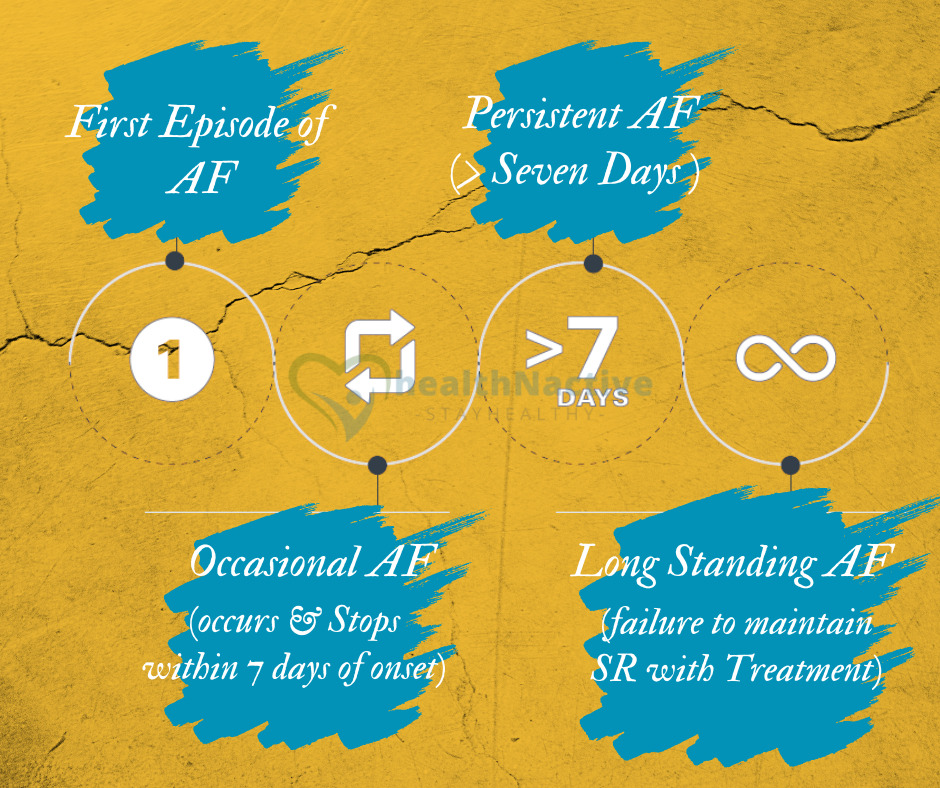
There are several other causes of AF, including non-modifiable variables and lifestyle factors.
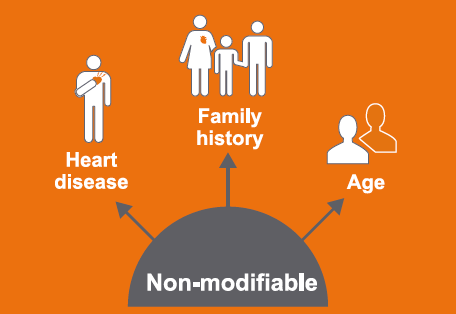
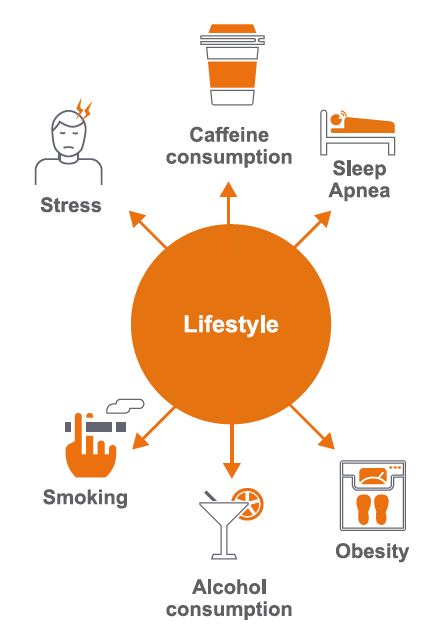
What are the Symptoms of AF?
Most individuals with AF experience a wide range of symptoms, which can significantly lower quality of life. However, 15 to 30 percent of patients experience no symptoms at all.
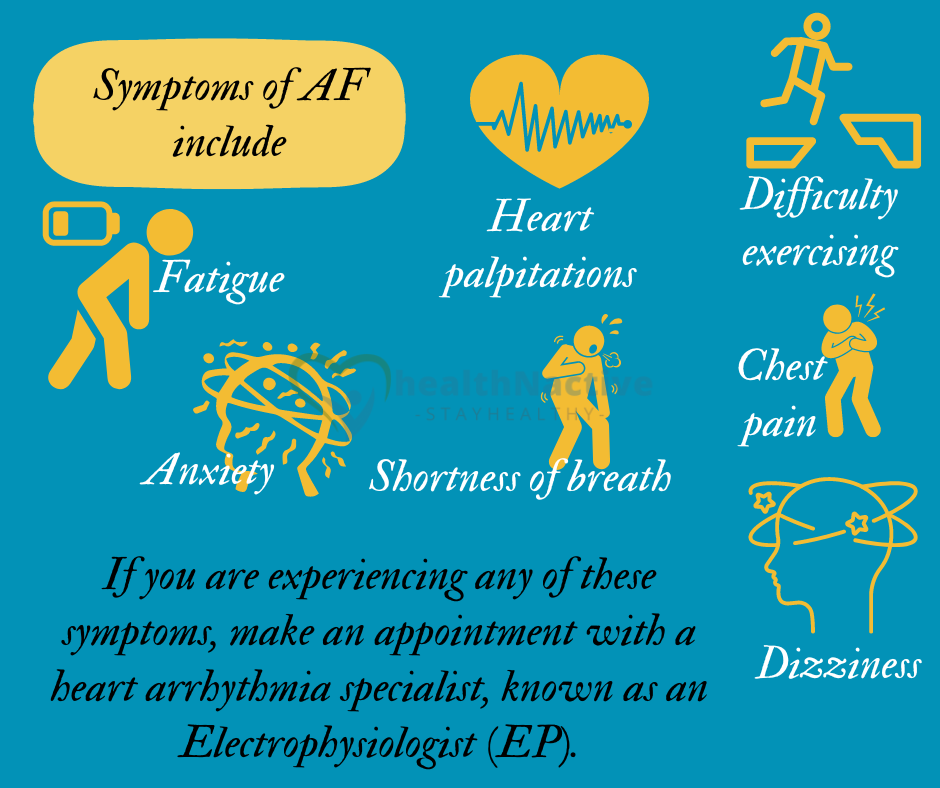
How Is Atrial Fibrillation Diagnosed?
Electrocardiogram (ECG): Electrocardiograms, or ECGs, are the typical test that physicians use to identify Atrial Fibrillation. The heart uses electric currents to generate the rhythmic muscle contractions that pump blood through its chambers and out to the body. This test uses painless electrodes placed on the chest to detect those electric currents.
Holter Monitor or Event Monitor: You might need to wear a portable EKG monitor for days, weeks, or months to acquire an accurate assessment of your cardiac function if AF isn’t found during an ECG, which typically just takes a few minutes.
Stress Test: The electrical activity of the heart varies throughout a typical stress test. This kind of test is useful for identifying AF types that primarily or commonly occur during periods of high physical activity.
Who Treat Atrial Fibrillation?
Primary Care Physician : General medicine is practised, and heart arrhythmias can be identified and treated.
Cardiologist : Specialising in diagnosing and treating conditions of the cardiovascular system, along with AF
Electrophysiologist : A cardiologist with advanced training in heart arrhythmias who expertise in the diagnosis, management, and treatment of heart arrhythmias, including AF and is the ideal physician to perform catheter ablations
Why should you seek AF treatment?
It is a Progressive Disease : AF may advance and worsen if untreated. Studies have shown that when a disease is treated early on, the alternatives for therapy are more effective.
Life quality can be significantly affected by AF : AF can negatively affect quality of life and lead to other serious health conditions.
The risk of heart failure and stroke is increased by 5 times in people with AF

AF & Stroke are related?

Stroke is a major side effect of AF that is linked to mortality and long-term impairment. Patients with AF immediately following a stroke experience more neurologic impairment and functional dysfunction than patients without AF.
A stroke occurs when the flow of blood to part of the brain is significantly reduced or blocked. The most common cause of a stroke is a blood clot.

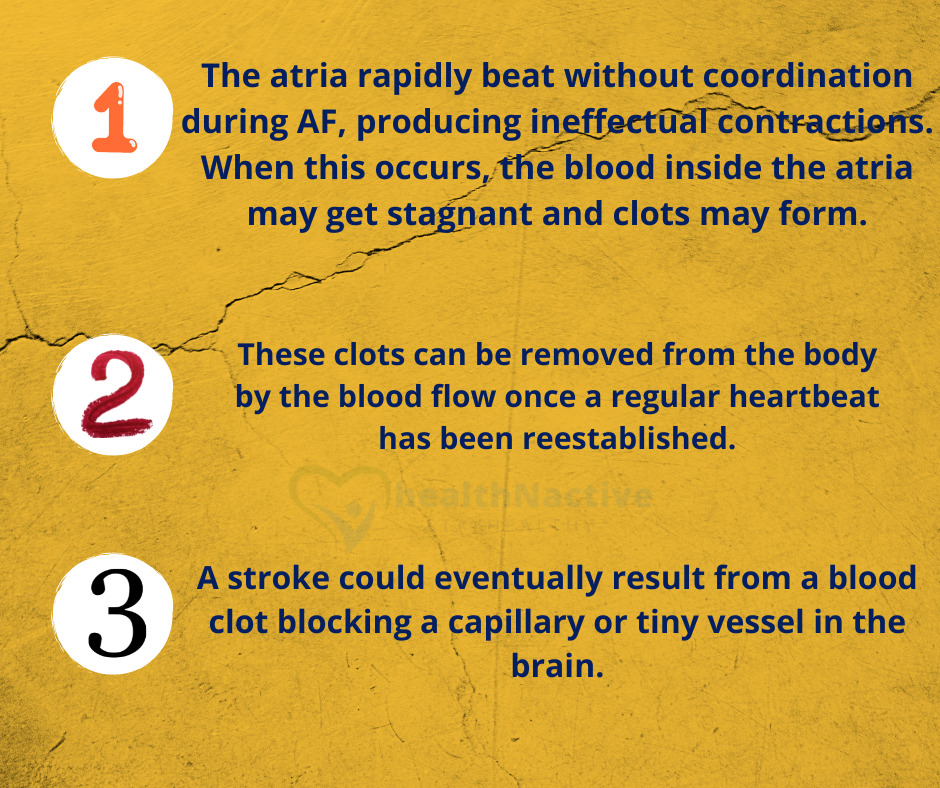
Suggested reading: Atrial Fibrillation Treatment Options

